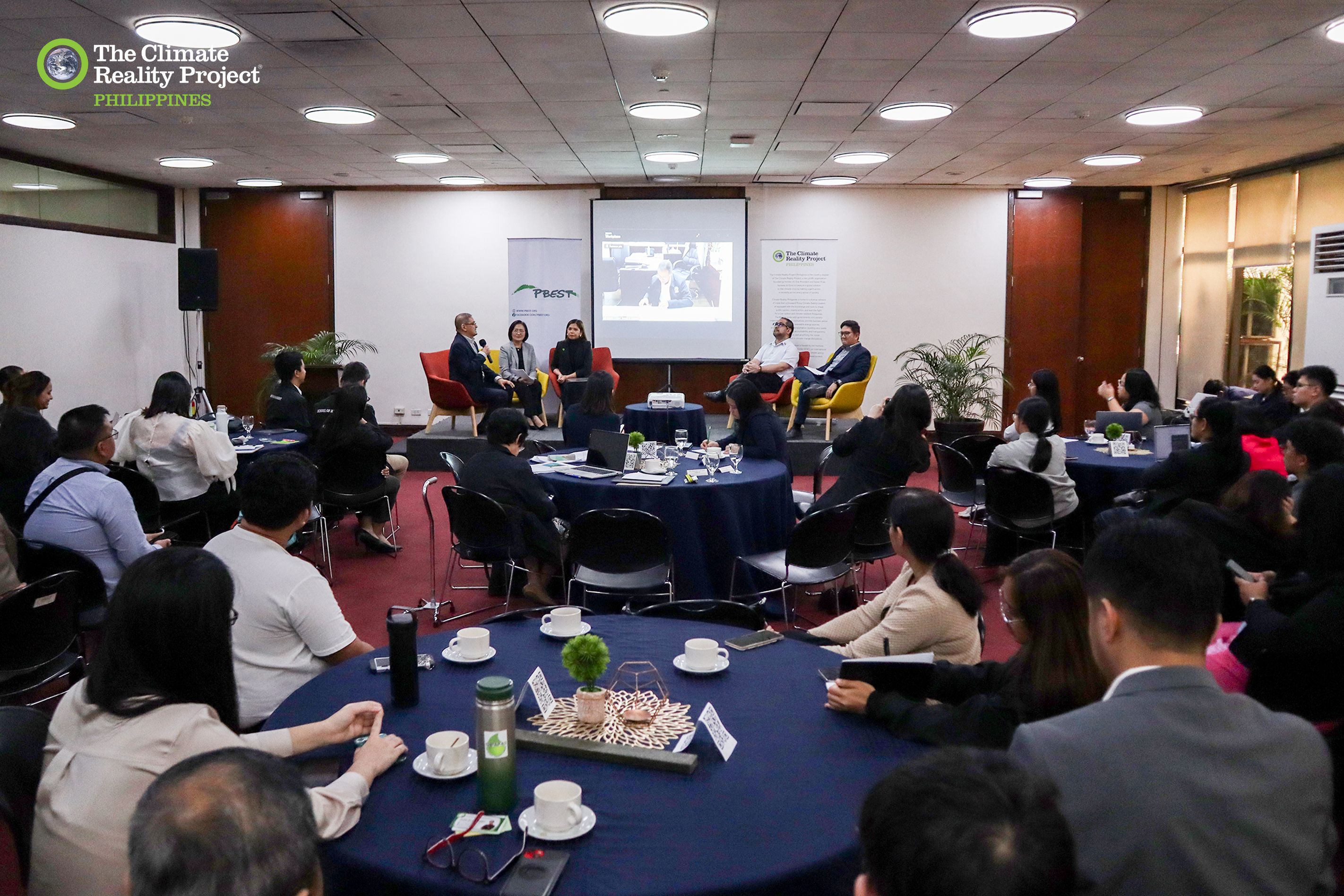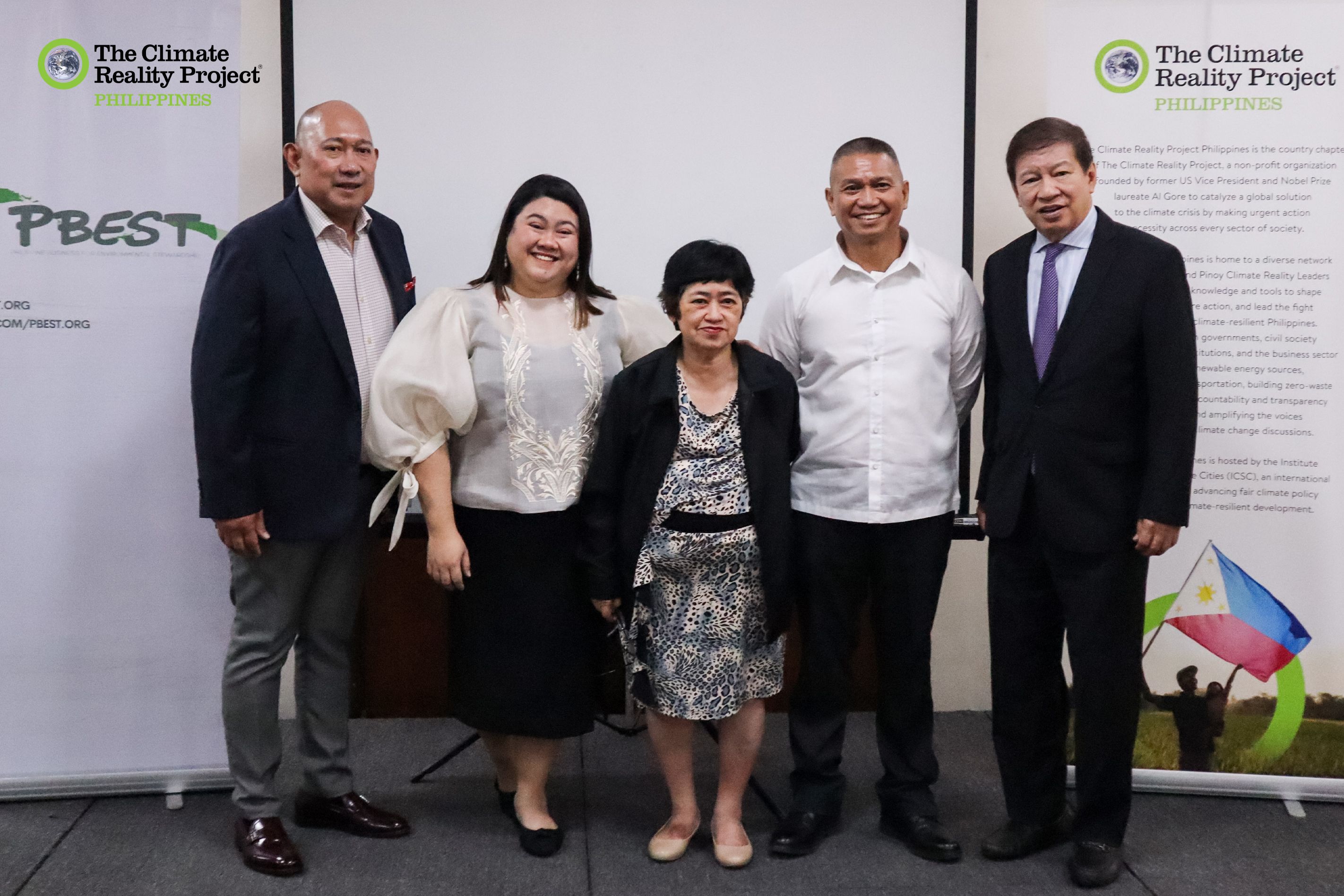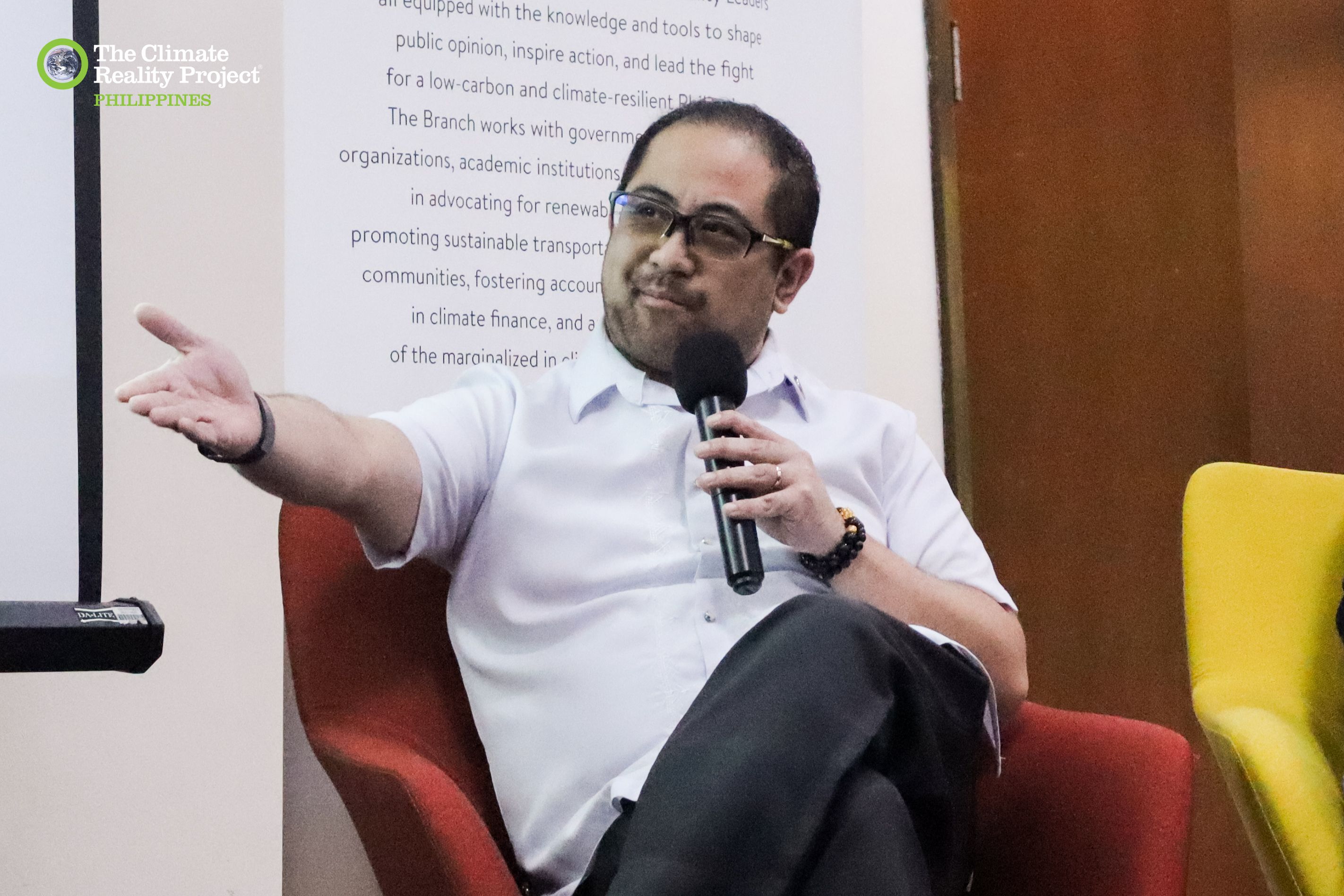Strong implementation of EPR law needed now
Pushing the urgent need for good governance to achieve a circular economy
In the upcoming 2025 midterm elections, climate action is on the ballot, according to a recent survey conducted by the Social Weather Stations and the Stratbase ADR Institute for Strategic and International Studies.
When asked about the advocacies that would make them vote for a candidate, survey respondents answered the usual—job security, healthcare, and poverty alleviation. Interestingly, two issues entered the top 10: addressing climate change impacts and utilizing renewable energy.

“In our January 2025 survey, [it was revealed that] 87 percent of Filipinos will vote for candidates with advocacy to address the impacts of climate change and enhanced disaster resilience,” said Professor Victor Andres “Dindo” Manhit, Stratbase Institute president and lead convenor of the Philippine Business for Environmental Stewardship (PBEST). “That's quite high [compared to the 70 percent vote that the issue of fighting graft and corruption received] which surprised a lot of us.”
Manhit presented this during the knowledge-sharing session co-organized by The Climate Reality Project PH and PBEST last Feb. 17 at the Asian Institute of Management. The event brought together representatives from government agencies, civil society organizations, and the private sector.
The forum emphasized the crucial role of good governance in climate action, focusing on the implementation of the Extended Producer Responsibility (EPR) Act of 2022—a key piece of legislation designed to advance a circular, low-carbon economy in the Philippines.
Plastic pollution is a major driver of climate change, contributing to greenhouse gas emissions at every stage of its lifecycle—from production and consumption to disposal. Addressing plastic waste through the EPR Act is a crucial step toward mitigating climate-related risks and building environmental resilience.
The EPR Act requires large enterprises to take responsibility for the entire lifecycle of their plastic products, mandating progressive waste recovery targets: 20 percent by 2023, increasing to 80 percent by 2028.
Early compliance figures, but with gaps
Providing an update, Department of Environment and Natural Resources (DENR) Undersecretary Jonas Leones said that out of the 2,000 entities covered by the EPR Act, less than half have registered for EPR law compliance. Of more than 900 registered, only 700 have submitted their EPR Act Compliance Audit Reports for 2023, which are now under DENR validation.
“Based on initial evaluation, we have attained the figure [20 percent diversion target by 2023]. In fact, based on the recovery reports, they have already recovered four million kilos of plastic waste. Out of this four million kilos of waste, 160 thousand have been diverted,” said Leones.
While these numbers suggest progress, industry experts caution that these early figures are based on limited compliance and an incomplete evaluation mechanism.
“When the law was introduced in 2022, we did not have the audit guidelines. I think it was only in early 2024 that that was issued,” said Benjamin Villacorte, Philippines Sustainability Reporting Committee chairman at SGV & Co., a leading audit firm specializing in EPR compliance.

"In many cases, for us as auditors, we were in situations where it's very difficult to issue an audit opinion, meaning many companies were not auditable because they did not have good documents, they did not have good systems and processes and so on," he added.
Without full industry participation and robust assessment frameworks, these initial results cannot yet be considered a definitive measure of the EPR Act’s success.
Plastic credits as a stopgap measure
Early compliance has largely been driven by plastic credit purchases rather than actual reductions in plastic waste.
“In the first year, the sole recourse of many companies was really to buy plastic credits. Now they did not really have a lot of time to do innovation, like changing product design or other ways of diversion, but really to rely on plastic credit,” Villacorte explained.
Plastic credits enable businesses to meet sustainability goals by purchasing “plastic credits” from certified organizations or programs that remove plastic waste from the environment or recycle it.
While plastic credits played a crucial role in the early stages of EPR compliance, Villacorte stressed that they should not be a long-term solution. Instead, companies should focus on waste reduction strategies and circular economy innovations that go beyond offsetting plastic use, ultimately leading to more sustainable business practices.
Strengthening market mechanisms for circularity
The need for innovative solutions was also raised by Christopher Ilagan, chairperson of the advocacy committee of the Philippine Chamber of Food Manufacturers Inc. (PCFMI).
“Under the EPR law, we know that [incorporating recycled content into packaging for circularity] should be incentivized, but there are no operating rules on how those sorts of efforts can be incentivized. So it goes back to: How do you create that market? I think we need to explore how we can push more companies toward these solutions,” Ilagan urged.
In response, Undersecretary Leones shared that the DENR is working with the Department of Finance and other relevant agencies to develop tailored incentives for EPR Act compliance, aiming to finalize them by the end of the quarter.
He emphasized that the government aims to introduce innovative and practical incentives rather than duplicating existing ones, ensuring they provide real value to obliged enterprises, particularly those that are fully compliant.
Attorney Joseph Fabul, chairperson of the PCFMI Legislative Committee, called for sustainable packaging, circular economy innovations, and stronger public-private partnerships to improve waste management and boost EPR compliance.

“Environmental accountability is no longer just a compliance issue, but a business imperative. While companies are making strides in complying and even going beyond EPR compliance, policy support and stronger collaboration are crucial to driving long-term environmental sustainability,” said Atty. Fabul.
It takes a village
The need for multi-stakeholder collaboration to ensure the EPR Act’s effective implementation was seconded by Director Anna Liza Bonagua from the Bureau of Local Government and Development of the Department of the Interior and Local Government.
“EPR implementation requires a holistic approach involving the entire government—from the national government to local government units—as well as the private sector since it's now their main responsibility to reduce their product waste,” said Bonagua.
Beyond government and industry efforts, civil society organizations (CSOs) play a critical role in ensuring compliance with the EPR Act.
“Civil society organizations act as a bridge between businesses, government, and the public—ensuring that EPR is not just a policy on paper but a reality that leads to a cleaner, more sustainable Philippines,” said Climate Reality PH Deputy Branch Manager Aimee Oliveros.
Oliveros shared that, in addition to leading information and education campaigns on climate and environmental issues, CSOs serve as key watchdogs, ensuring that governments and businesses are held responsible for meeting their stated sustainability goals.
With the 2025 midterm elections approaching, so is the summer heat—a stark contrast to the cooler days Filipinos recently experienced. This seasonal shift will once again push climate change to the forefront of public discourse, just as Filipinos prepare to elect new leaders.
“We didn’t want to wait for the rising heat—or the heat of election season—to [discuss global warming]. We needed to do it now. More importantly, we need to do it more often,” Nazrin Camille Castro, branch manager of Climate Reality PH, stressed.